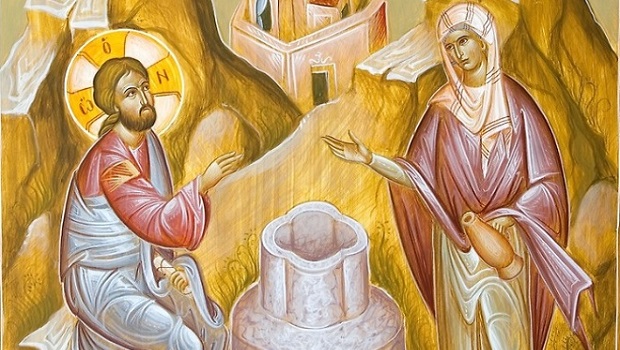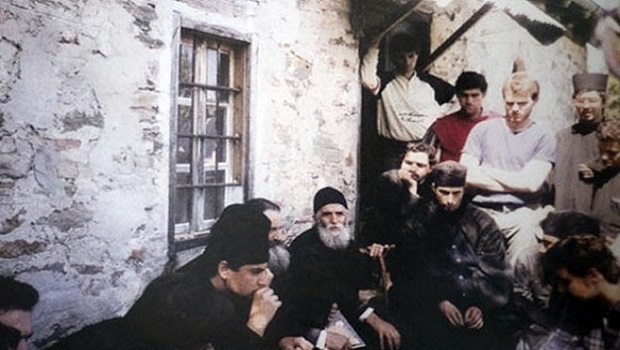Fr. Andreas Agathokleous
Our participation in Holy Communion is a spiritual matter concerning which the opinions expressed have fluctuated over time. From the view that we should commune only infrequently, out of respect for the sacrament and recognition of our own sinfulness, to the attitude that we should take communion every time we attend the Divine Liturgy, since this expresses our capacity as members of the Church.
We realize that there’s no answer to extreme positions, other than that which says that the answer lies not so much in the quantity of our participation in the Chalice of Life, but rather in the quality. Not so much how many times we take communion but simply how we do so.
It’s self-evident that no sacrament by itself can effect our transformation and sanctification unless we wish it to. Indeed, instead of being ‘for the remission of sins and life everlasting’ participation in Holy Communion can become ‘for judgment and condemnation’.
Within its bosom, the Church doesn’t have perfect and sinless people, but those who repent. Christ came to ‘call sinners to repentance’. The notion that, in order to take communion we should be perfectly ‘cleansed from the stain of sin’ is not only absent from the teaching of the Church, but is also unrealistic. We know that we’re all in a fallen state and that ‘only Christ is without sin’. This recognition will prevent any Pharisaical temptation to consider ourselves better than others because we don’t commit any of the great sins and are therefore ‘not like other people’.
The criterion for participation in Holy Communion are, of course, first that we’ve been baptized in the name of the Holy Trinity and that we believe what the Orthodox Church does. The second is that we repent and wish to be united to Christ ‘for the remission of sins and life everlasting’. These basic criteria will bring us to the point where we extend forgiveness to those who have wronged us and ask forgiveness from those we’ve wronged, to prayer and care, so that we go to Holy Communion in the expectation of Christ’s entry into our heart. A heart full of passions, full of bad thoughts, a life disordered and in disarray.
Then, when we receive Him in Communion, He comes and transforms the darkness within us into light, His light, the turmoil within us into serenity where everything’s under control, in order and takes the form of what suits us best.
In the face of this blessing, there’s no room for the question: ‘When should I take communion?’ Because the need of the heart doesn’t ask such questions. If it so desires, it proceeds as quickly as it can for as long as it can, towards Holy Communion, in order to be united with its Beloved and find its equilibrium, its center, its position so that it can experience the joy and peace it seeks.
On the evening of the Last Supper, Christ gave the Church the sacrament of the Divine Eucharist so that He could be united with us and confirm His love for us. When we take Holy Communion we respond to His love.
Source: pemptousia.com
ABOUT THE ORTHODOX CHRISTIAN NETWORK
Orthodox Christian Network (OCN) is a 501(c)3 and an official agency of the Assembly of Canonical Bishops of the United States of America . It is a recognized leader in the Orthodox Media field and has sustained consistent growth over twenty-two years. We have worked to create a community for both believers and non believers alike by sharing the timeless faith of Orthodoxy with the contemporary world through modern media. We are on a mission to inspire Orthodox Christians Worldwide. Click to signup to receive weekly newsletter.
Join us in our Media Ministry Missions! Help us bring the Orthodox Faith to the fingertips of Orthodox Christians worldwide! Your gift today will helps us produce and provide unlimited access to Orthodox faith-inspiring programming, services and community. Don’t wait. Share the Love of Orthodoxy Today!
OCN has partnered with Pemptousia. A Contemporary post-modern man does not understand what man is. Through its presence in the internet world, Pemptousia, with its spirit of respect for beauty that characterizes it, wishes to contribute to the presentation of a better meaning of life for man, to the search for the ontological dimension of man, and to the awareness of the unfathomable mystery of man who is always in Christ in the process of becoming, of man who is in the image of divine beauty. And the beauty of man springs from the beauty of the Triune God. In the end, “beauty will save the world”.




0 Comments